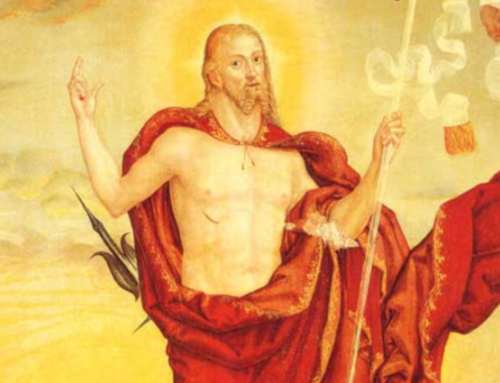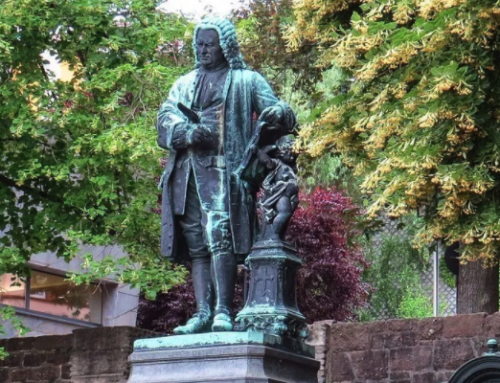 After his lecture to a packed house recently, Dr. R.R. “Rusty” Reno was answering questions from the audience, when one student asked him about how Wyoming Catholic College students should deal with the misconceptions others have about the liberal arts at Wyoming Catholic. Dr. Reno said he hated to have to tell him, but most people didn’t even know about Wyoming Catholic, much less have misconceptions about it. But in the serious part of his answer, Dr. Reno compared Wyoming Catholic to a large, well-known university.
After his lecture to a packed house recently, Dr. R.R. “Rusty” Reno was answering questions from the audience, when one student asked him about how Wyoming Catholic College students should deal with the misconceptions others have about the liberal arts at Wyoming Catholic. Dr. Reno said he hated to have to tell him, but most people didn’t even know about Wyoming Catholic, much less have misconceptions about it. But in the serious part of his answer, Dr. Reno compared Wyoming Catholic to a large, well-known university.
In a remark that struck everyone who heard it, he said that the students of Wyoming Catholic College will have a disproportionate influence in the culture. That is, even though our alumni do not come from a big college with a famous name, they are formed so well as men and women, educated so well in the great tradition, that their effect in the world will be disproportionate to the smallness of from where they came.
Those of us who teach here have often thought exactly the same thing. We do not feel ourselves to be part of a tiny, out-of-the-way place, obscure both in its daily efforts and its long-term effects. Rather, we are at the center of a vital renewal of tradition, and we are privileged to see it increasingly take hold in the students. I think of what happened in the Renaissance when the rediscovery of antiquity generated an immense excitement about new possibilities: the present moment was being bathed and ennobled by the upwelling of the great past.
That kind of cleansing goes on at Wyoming Catholic College. What does it wash away? The false present. Most people in our culture are addicted to an artificial consciousness. By getting on their phones or laptops, they enter and become part of what’s going on, the news, commentary, and scandal, the emails and texts, the personal friendships photographed, posted, and tweeted, the gossip about celebrities, the partisan wrangling, the latest gaffes and slanders of politicians, the streaming shows—all of it flowing, image and text, through the vast but personally accessible “mind” of the moment that becomes ours and displaces what might otherwise be going on in us. When I was growing up in the ‘50s and ‘60s, television had already assumed this role. For the generation of my parents, it was radio, and before that the newspapers.
But the false present has a hard time at Wyoming Catholic. I’m struck again by the genius of our founding. All incoming students first undergo a twenty-one-day backpacking expedition into the mountains that removes them from any access to that artificial consciousness—no phones, no Internet, no movies, no video games; instead, they have an intense experience of nature and of each other. Then when they come back down, they plunge into Homer and the Bible and Aristotle; they encounter, with each other, minds and truths that have formed the high and enduring consciousness of the West.
It’s a natural thing to want to know what’s going on—unless it robs us of the moment with those who immediately surround us, who are what’s going on. So when I think of our students with their aptitude for presence, their training in the wilderness, their apprenticeship in the Great Books, their liturgical seriousness, I think of a force for restoration going into the world. When I think how our faculty and staff know each one of them by name, how we all care deeply about them and guide them by our best lights, I think how rare that attention is in the great anonymity of the educational industry.
What lies behind our disproportionate influence in the future is the baptism of the present moment. I am confident that, if we are true to our calling, the years to come will manifest the clarity and confidence our students will bring to the wider world.
Republished with gracious permission from Wyoming Catholic College’s Weekly Bulletin (October 2016).
The Imaginative Conservative applies the principle of appreciation to the discussion of culture and politics—we approach dialogue with magnanimity rather than with mere civility. Will you help us remain a refreshing oasis in the increasingly contentious arena of modern discourse? Please consider donating now.







“Baptism of the present moment.” I like that and will think of the phrase often as I disentangle myself from the Great Stereopticon now that the election is nearly done.
This article, along with many others by Dr. Arbery, cause me to want my grandchildren to attend Wyoming Catholic College! We used to call the present moment the Sacrament of the Present Moment–beautiful!
Baptism of the moment: Interesting enough are two expanded thoughts by Eva Brann, distinguished tutor at St. Johns, Annapolis, one on time, the other on free will, or will at all. On time, Dr. Brann lays out a case that the only time there is is the present, an idea that lines up well with ‘baptism of the moment. On will, after an analysis of who’s who in the history of the philosophical inquiry into will or free will, Dr. Brann seems to confess to being unconvinced that there is such a thing. On time, it is interesting that our faith is convinced that God lives only in the present. The great books, because of their greatness in lining up with what speaks to truth, operate for us in the present, and become the only evidence believers need for truth standing the test of time, which, according to Dr. Brann, does not exist for lack of definition. On will, or free will, is it that truth is pre-programmed into our ensoulment that when we hear something akin to it, His [ Truth ]
will becomes ours, suggesting Dr. Brann may be on to something of will’s non-existence? The decision to reject Truth’s will is simply disobedience. Is, then, the abiding we are called to the recognition of what St. Paul testified to, ‘it is not I that lived, but Christ that lived in me’? Are the concepts of time and will human constructs acting as barriers to entering into ‘the life’ that our Lord says awaits us and is available now, the present?